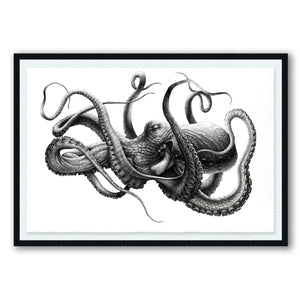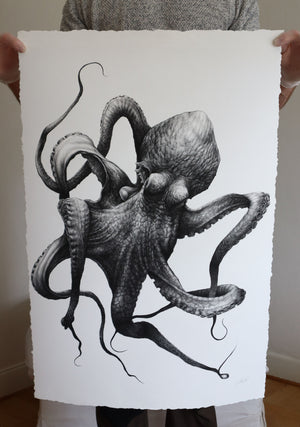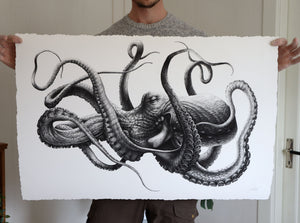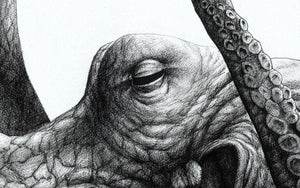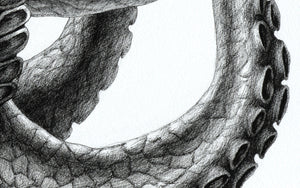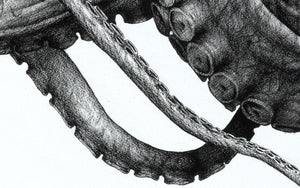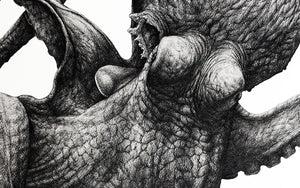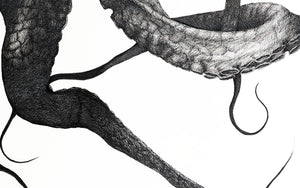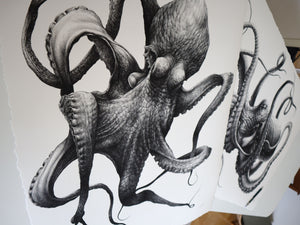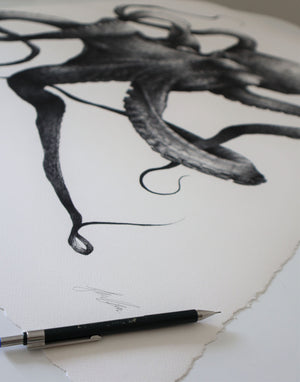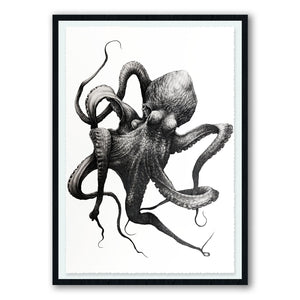
Cephalopoda I & II
Shipping calculated at checkout
In stock
All Sales Final
Please review our Refund Policy before checkout. All sales are final for our limited-edition prints, which help support PangeaSeed’s conservation work.
Cephalopoda I
Fine-art Giclée print on Canson Aquarelle 310gsm museum-grade fine art paper
Hand-deckled edges
24" x 36"
Limited Edition of 75
Numbered
Cephalopoda II
Fine-art Giclée print on Canson Aquarelle 310gsm museum-grade fine art paper
Hand-deckled edges
36" x 24"
Limited Edition of 75
Numbered
Printed with ♥ by Static Medium
Artist Statement
Cephalopoda I & II are works inspired by the extraordinary intelligence, emotion, and evolution behind octopuses. My fascination for them stems from their genius. With the typical adult octopus containing 500 million neurons in its body, an intelligence rivaling that of famously smart animals such as cows and apes, the majority of their neurons are in their arms, which can not only touch but smell and taste. Because of this, octopuses excel in discriminative learning. Confronted with two objects, they are able to learn to attack one of them in exchange for a reward, basing their choice on characteristics such as color, shape, texture, or taste, and they can retain this information for several months. They can also generalize a complex thought process in which they need to apply a previously learned rule to new objects spontaneously.
Octopuses meet every criterion for the definition of intelligence, demonstrating great flexibility in obtaining information, processing it, and applying it to both predators and prey. Armed with multiple unique adaptations, cloaked in secrecy, these eight-limbed hunters of the deep are some of the most intelligent creatures in the ocean.
Since 2008, the reported annual global catch of octopuses has been around 350,00 metric tons, which is likely an underestimate as catches are, for most parts, underreported. Field marine surveys at twelve marine sites conducted by Endangered Species International between 2013 and 2018 in Southeast Asia showed a sharp population decline or an absence of octopuses due to overfishing and habitat destruction. Given the depleted and dramatic state of global fisheries and the challenges of providing adequate food to a growing human population, increased farming of carnivorous species such as octopus will increase ecological impact and must be avoided.
- James Rocke
The Story Behind
Cephalopoda I & II
James Rocke


